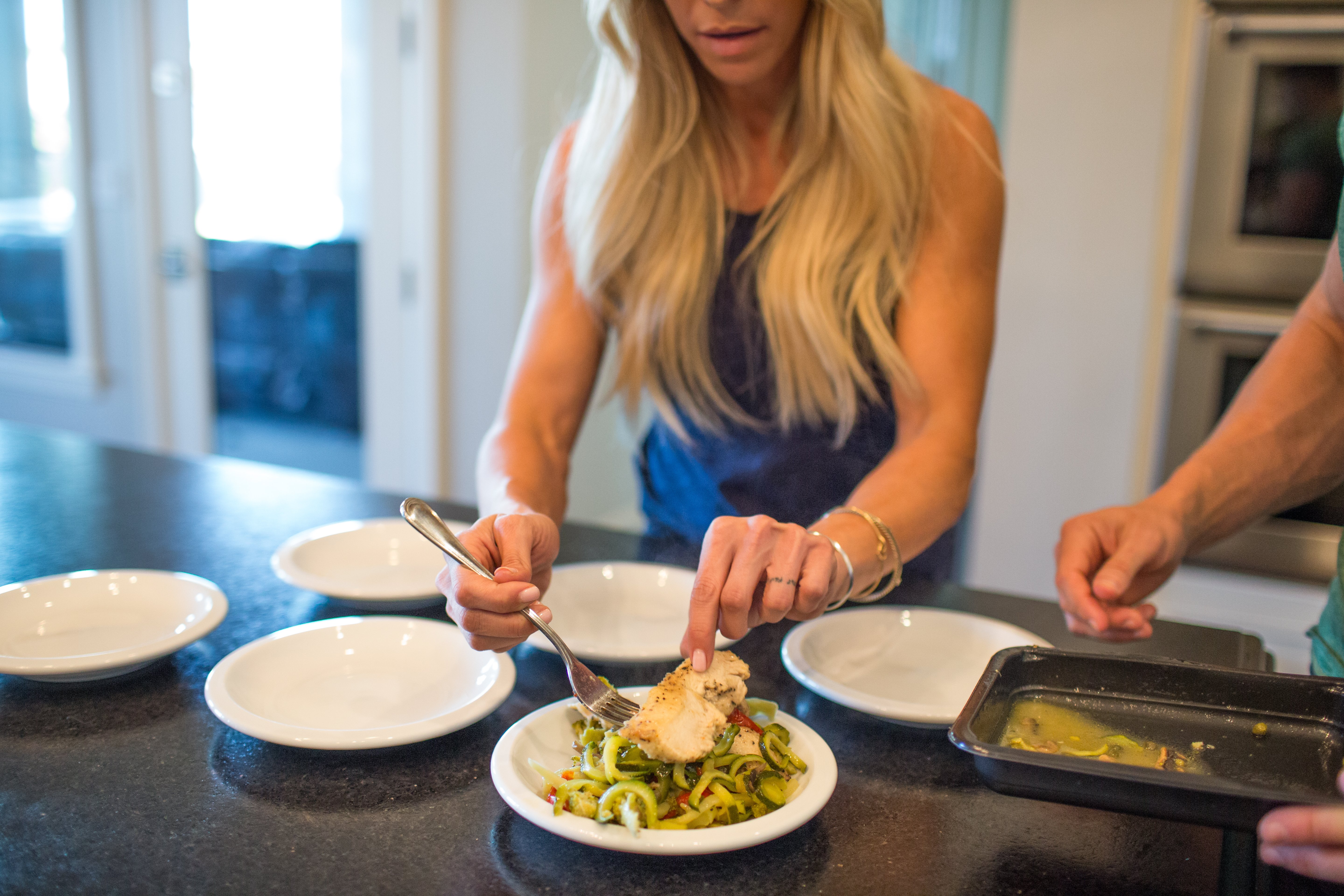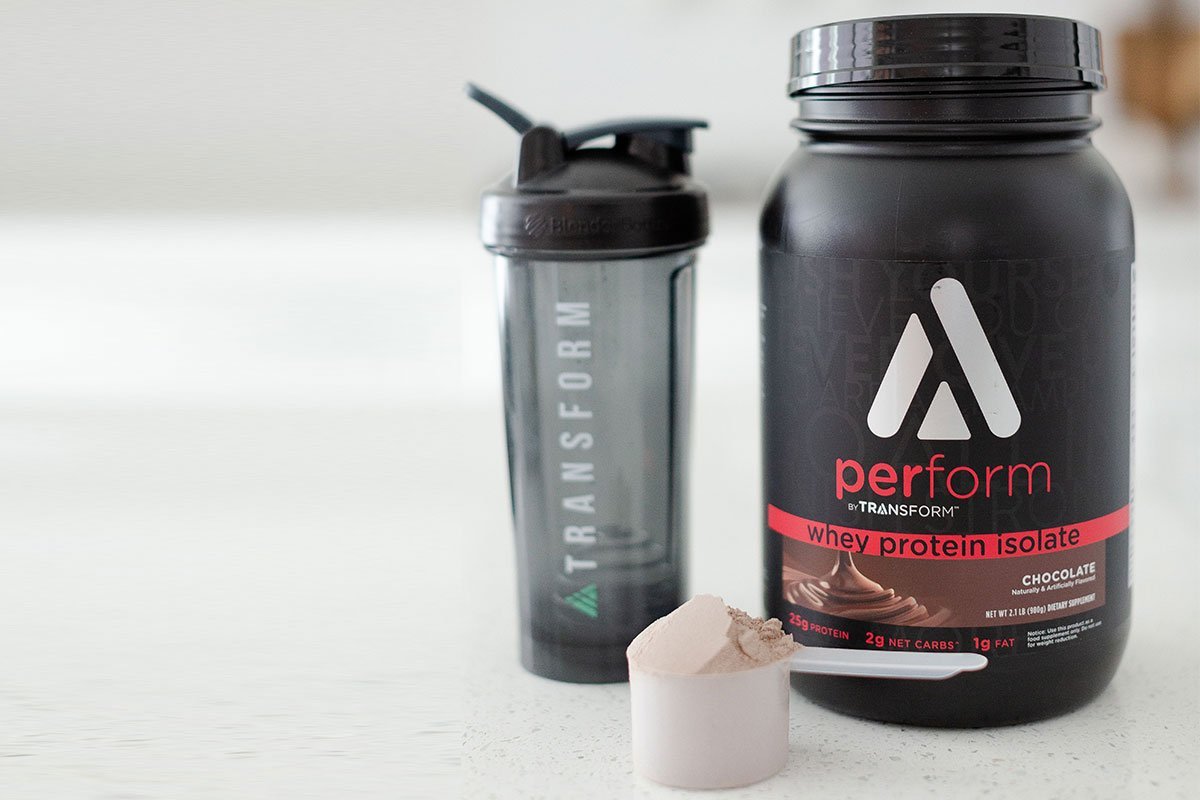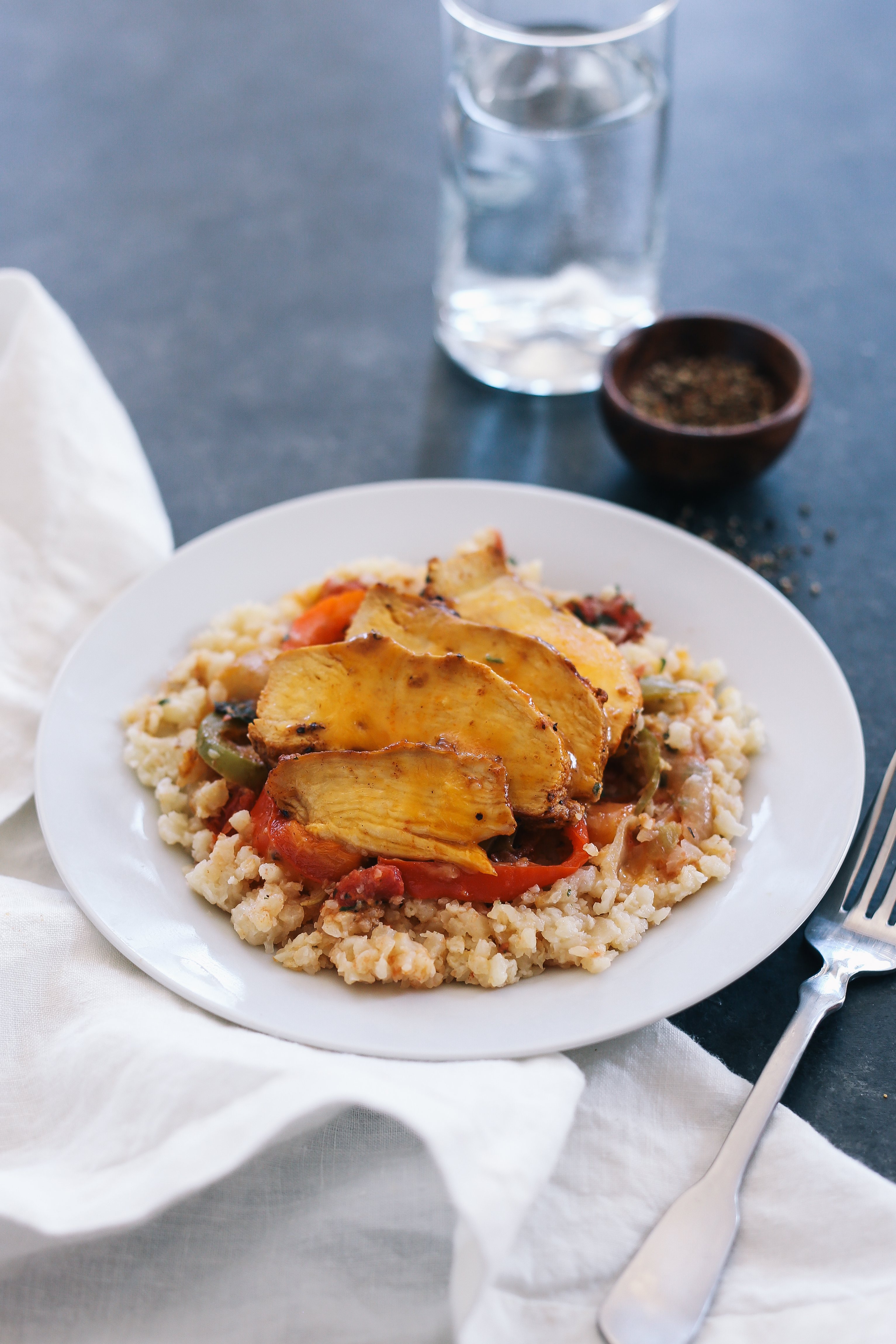Let?s face it?nutrition can be so confusing! There are grams of this, percentages of that, do eat this, don?t eat that, do eat this at this time, don?t eat it at that time…and on and on and on. And since nutrition is pretty much the most important component of reaching any health and fitness goal, it can get downright frustrating when you?re trying to achieve those goals and can?t seem to figure out the best way to do it food-wise! And protein? Yeah…it can definitely be confusing. If you?re a fellow wannabe protein professional, you want the answers to these popular protein-related questions…NOW!
What is it?
Why is it so important?
When should I eat it?
How much should I eat?
First up, the protein basics.
What is protein, why is it so important, and when should I eat it?
While NO macro is the most important one, protein is definitely up there on the list…in my top three (wink, wink). Every single part of our bodies is made up of protein?from our skin to our muscles and organs. Without protein, we would not exist! For this reason ALONE, it’s crystal clear why adequate protein in our diets is so necessary. Besides being the foundation of our existence, it has so many important functions in our bodies:
- Like I said, every single cell in our bodies contains protein, so consuming the right amount of this vital nutrient is crucial!
- Protein contains many vital vitamins and minerals (those micronutrients) including vitamin E, magnesium, iron, zinc, and the B vitamins?all of which your body needs to function properly.
- Besides muscles, it also helps build bones, cartilage, skin, and blood, as well as hair, nails, enzymes, hormones, and other body chemicals.
- Not only is protein a body builder, but it?s also a body repairer! Protein is so powerful!
Believe it or not, protein is the most immediately satiating macronutrient. What does that mean? Simply put, protein will make you feel full immediately after eating it. For this reason, Chris and I have a rule in our home: Protein first at each meal. This keeps all of us from overindulging in the easy-to-overdo carbs (and junk foods, when we eat them!). And if you follow any of our carb cycling plans, you will notice that we eat protein at every. single. meal.
Wondering about some good sources for protein? Here you go:
- Dairy: cottage cheese, eggs, egg whites, egg substitutes, Greek yogurt
- Meat: chicken, duck, ostrich, turkey, beef, buffalo, elk, venison, pork (always choose those lean cuts)
- Seafood: catfish, halibut, lobster, salmon, shrimp, tilapia, tuna
- Vegan: tempeh, texturized vegetable protein (TVP), tofu
And here?s another awesome protein option! If you follow me and Chris at all on social media, you?ll often see us chugging down a protein shake. Let?s get real…we?re SUPER busy (hence, the chugging 😉 ), and a protein shake can be an easy, delicious, and nutritious way to fill in that protein gap in our nutrition programs.
How Does Protein Powder Factor In? And When Should You Use It?
You?ve probably heard about protein shakes and meal replacement shakes, so what?s the difference between the two? Great question!
Click here to shop our Perform Whey Protein Isolate Shake
- A protein shake (like our Perform Whey Protein Isolate Shake) serves as the protein portion of a meal, and to create a complete meal, you?d add a carb, or a fat, or both.
- A meal replacement shake (like our Everyday Low Carb Meal Replacement Shake) is exactly that?it replaces an entire meal. With our shakes, the shake alone can be a complete low carb meal, and we have several delicious flavors too!
What?s a low carb meal? Check out our carb cycling basics here!
In general, we recommend consuming (or chugging!) two protein or meal replacement shakes a day since we also want to make sure we?re getting most of our nutrients from whole foods.
While it?s important to eat enough protein, it’s also important that we don’t over consume this macro. A surplus of protein in the body can put unnecessary stress on your kidneys, dehydrate you, cause gout, and back up your digestive system, which leads us into the next question…
How much protein should I consume?
The amount of protein your body needs is dependent on a handful of things:
- Your body weight and height
- The amount of muscle mass you carry
- Your activity levels
- Your goals.
A nice rule of thumb for the average person is to eat 80% of your body weight in grams of protein.
We say 80% because we are attempting to feed the lean muscle mass in your body. If you are 150 lbs, then 120 grams of protein a day is a safe number to shoot for. If you are 200 lbs, then 160 grams a day should work for you. Now keep in mind…we ONLY want to feed the muscle mass on our bodies, so if you happen to carry a little extra body fat, you should estimate the pounds of muscle mass on your body and feed JUST that part of you. For example: You weigh 400 lbs, and you know you are about 45% body fat (180 lbs) and 55% lean muscle mass (220 lbs). In this case, Chris and I would feed you 176 grams of protein a day (220 x .80). Easy peasy!
And here?s another rule of thumb: According to the experts, the Acceptable Macronutrient Distribution Range (AMDR), which is a safe and effective range for protein intake, is 10-35% of daily calories, depending on your goals.
Still confused?! Here is the easiest way to remember just how much protein (and carbs + fats!) to eat at every meal.
We call it the Palm, Fist, Thumb Rule!? At each meal:
- your protein should be about the size of your palm
- carbs about the size of a closed fist
- fats about the size of your thumb
For example, my not-so-guilty pleasure food?chicken and waffles! One of these chicken breasts and 2 of these waffles was my meal. I ate my lean protein first (the grilled chicken) then finished out my meal with the carbs my body needs. Make sense?!
Heidi, what is your daily protein consumption?
I personally consume 120 grams of protein a day. This is a bit higher than recommended above, but if you?ll remember, protein consumption also depends on your own personal goals. My goals are to build muscle and increase my mass. I currently weigh in at 116 lbs, of which 100-105 lbs of my weight may be lean mass (Side note: ?lean mass? includes bone, organs, tissue, blood, etc., in addition to muscle). For a sedentary or lightly active lifestyle, or one where I wanted to simply maintain my current weight, I would probably eat 100-105 grams of protein a day. Since I am still trying (like heck) to increase my muscle mass, my daily protein intake is a bit higher at 120 grams a day.
Protein Problems: I’m confused by how much to eat of which foods!
Protein sources can be a bit confusing, especially when the amount of protein in 3 ounces of this equals the same amount in 5 ounces of that! And when you add protein powders into the equation, it?s nearly impossible to know off the top of your head (when you don?t have your scale handy) how many ounces of lean meat, or how many eggs, or how much protein powder you need to eat to get in all those grams of protein you need.
MyFitnessPal has been my best friend over the past few years, giving me ALL of the info I could possibly need to know on protein portions. While I am going to give you a simple portion equivalent guide below to some common protein sources, I still highly recommend you download a calorie counting app to help you throughout the day.
Alrighty, these portions are approximate equivalents for 21-26 grams of protein:
- 3 ounces of fish: Checkbook cover
- 3 ounces of lean meat (chicken, extra-lean ground turkey, extra-lean beef): Smartphone or deck of cards
- 1 scoop of protein powder: Golf ball
- 1 cup of Greek yogurt: Baseball
While all of this information may be a lot to consume (pun intended), rest assured that practice makes perfect…and it even took ME years to figure it all out. Even at that, I am still learning, so know that you?re not alone in all of this protein confusion. We WILL become protein pros?together!
xo,
Related reading:
Protein Powder: It?s Not Just for Shakes Anymore!
Eating with Macros: A Day in the Life
Macro Tracking For the Win! All of Your Questions Answered












22 Responses
Because I?m lactose intolerant I don?t do well with whey protein powders. 🙁
Do you have a vegan one you recommend?
Hi Shawntae: Since protein powders are a matter of preference and taste, we’d recommend you try a few and see which you like best! 🙂
I saw where you added Splenda to your oatmeal. I always heard to stay away from artificial sweeteners. What do you think? Thanks
Hi Tammy: Artificial sweeteners can be a bit controversial, but adding a bit here and there in place of sugar can be beneficial for your transformation goals if that’s what you choose to do. As with anything, we believe in doing what’s best for you and your goals! 🙂